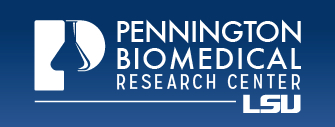Actos Now for Prevention of Diabetes (ACT NOW)
| Status: | Completed |
|---|---|
| Conditions: | Endocrine, Diabetes |
| Therapuetic Areas: | Endocrinology |
| Healthy: | No |
| Age Range: | 18 - Any |
| Updated: | 4/21/2016 |
| Start Date: | January 2004 |
| End Date: | April 2010 |
The purpose of this study is to examine whether pioglitazone versus placebo can reduce the
conversion rate of impaired glucose tolerance (IGT) to type 2 diabetes mellitus
conversion rate of impaired glucose tolerance (IGT) to type 2 diabetes mellitus
IGT is a prediabetic state. If IGT can be prevented from progressing to overt diabetes, the
hyperglycemia-related complications of this devastating disease can be prevented. Subjects
with IGT will be identified with an oral glucose tolerance test (OGTT). Eligible subjects
also will have a measurement of first phase insulin secretion and insulin sensitivity using
the frequently sampled intravenous glucose tolerance test (FSIVGTT) and carotid intimal
media thickness using carotid ultrasound. Following these measurements subjects will be
randomized to receive pioglitazone or placebo and they will return every 3 months for
determination of fasting plasma glucose (FPG) concentration and interim medical history.
Recruitment will take place over 15 months. From the time that the recruitment period ends,
subjects will be followed for a total of 24 months on pioglitazone or placebo. The OGTT will
be repeated at 15,27, and 39 months, or if the FPG is ≥ 126 mg/dl on the 3-month follow up
visits. If the diagnosis of diabetes is established before month 39 or at month 39, the
FSIVGTT and carotid ultrasound will be repeated. At 39 months, subjects will be washed out
of pioglitazone or placebo and the OGTT, FSIVGTT, and carotid ultrasound will be repeated at
month 45.
hyperglycemia-related complications of this devastating disease can be prevented. Subjects
with IGT will be identified with an oral glucose tolerance test (OGTT). Eligible subjects
also will have a measurement of first phase insulin secretion and insulin sensitivity using
the frequently sampled intravenous glucose tolerance test (FSIVGTT) and carotid intimal
media thickness using carotid ultrasound. Following these measurements subjects will be
randomized to receive pioglitazone or placebo and they will return every 3 months for
determination of fasting plasma glucose (FPG) concentration and interim medical history.
Recruitment will take place over 15 months. From the time that the recruitment period ends,
subjects will be followed for a total of 24 months on pioglitazone or placebo. The OGTT will
be repeated at 15,27, and 39 months, or if the FPG is ≥ 126 mg/dl on the 3-month follow up
visits. If the diagnosis of diabetes is established before month 39 or at month 39, the
FSIVGTT and carotid ultrasound will be repeated. At 39 months, subjects will be washed out
of pioglitazone or placebo and the OGTT, FSIVGTT, and carotid ultrasound will be repeated at
month 45.
Inclusion Criteria:
- Men and women
- All ethnic groups
- 18 years of age and older
- Impaired glucose tolerance by glucose tolerance test (fasting glucose 95-125 mg/dl
and 2 hr glucose of 140-199 mg/dl)
- At least one of the following:
- One or more components of the insulin resistance syndrome (HDL < 40 mg/dl in
females and <35 mg/dl in males, fasting triglycerides > 150 mg/dl, blood
pressure > 135/85 mmHg, BMI > 24 kg/m2, waist circumference > 102 cm in men and
> 88 cm in women)
- One or more first degree relatives with type 2 diabetes
- History of gestational diabetes
- Polycystic ovarian disease
- Minority ethnic background (Mexican American, African American, Asian and
Pacific Islanders, Native American)
Exclusion Criteria:
- Type 2 diabetes
- Previously treated with thiazolidinediones (ever) or metformin (within one year)
- Previously treated with a sulfonylurea, a meglitinide, an alpha glucosidase inhibitor
for more than a week within last year or within the 3 months prior to randomization
- Previously treated with insulin (other than during pregnancy) for more than one week
within the last year or within the 3 months prior to randomization
- Cardiovascular disease
- Hospitalization for treatment of heart disease or stroke in past 6 months
- New York Heart Association Functional Class > 2
- Left bundle branch block or third degree AV block
- Aortic stenosis
- SBP > 180 mmHg or DBP > 105 mmHg
- Renal disease
- Anemia
- Hepatitis
- GI diseases (pancreatitis, inflammatory bowel disease)
- Recent or significant abdominal surgery
- Advanced pulmonary disease
- Chronic infections
- Weight loss > 10% in past 6 months
- Pregnancy and childbearing
- Major psychiatric disorders
- Excessive alcohol intake
- Thiazide use > 25 mg per day
- Non-selective beta blockers
- Niacin
- Systemic glucocorticoids
- Weight loss or weight gain medication
- Thyroid disease-suboptimally treated
- Active endocrine diseases (Cushing's, acromegaly)
- Plasma triglycerides over 400 mg/dl (despite treatment)
- History bladder cancer
- Hematuria
We found this trial at
8
sites
Pennington Biomedical Research Center Unlike other medical research facilities where science occurs in separate labs...
Click here to add this to my saved trials
Click here to add this to my saved trials
Click here to add this to my saved trials
Click here to add this to my saved trials
Click here to add this to my saved trials
Click here to add this to my saved trials
Click here to add this to my saved trials
Georgetown University Georgetown University is one of the world's leading academic and research institutions, offering...
Click here to add this to my saved trials

